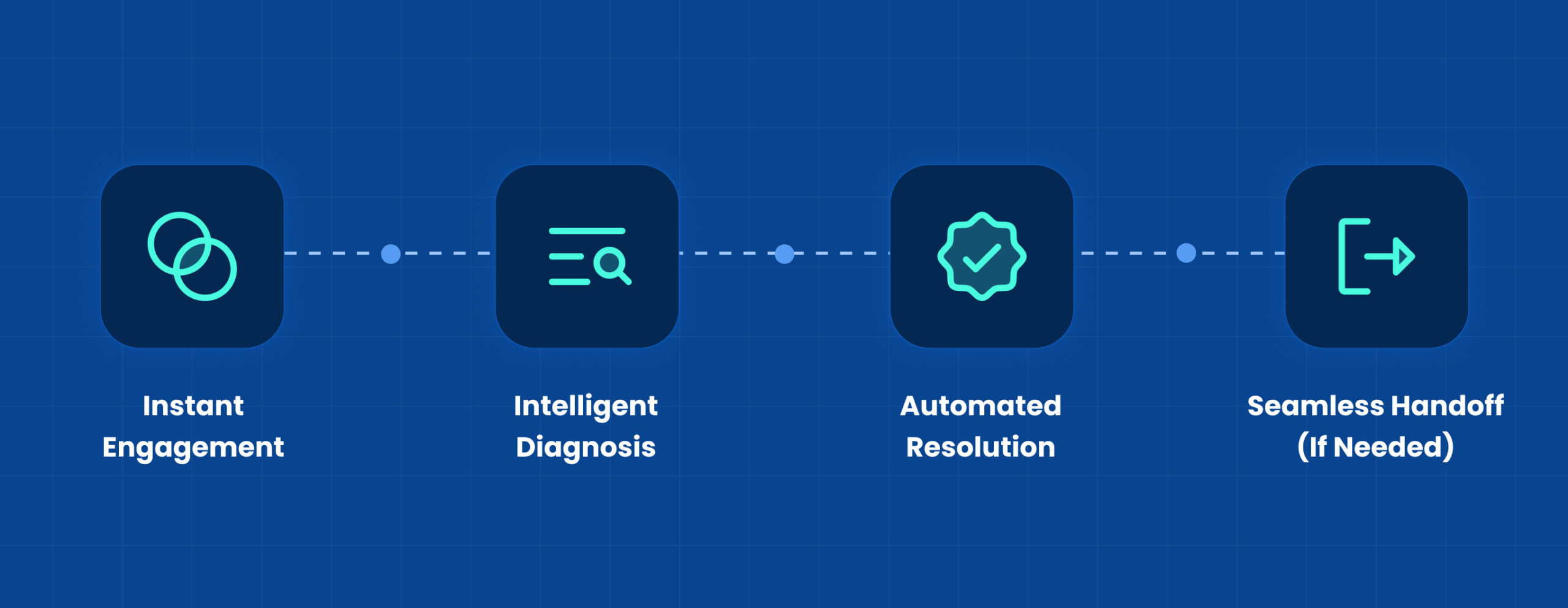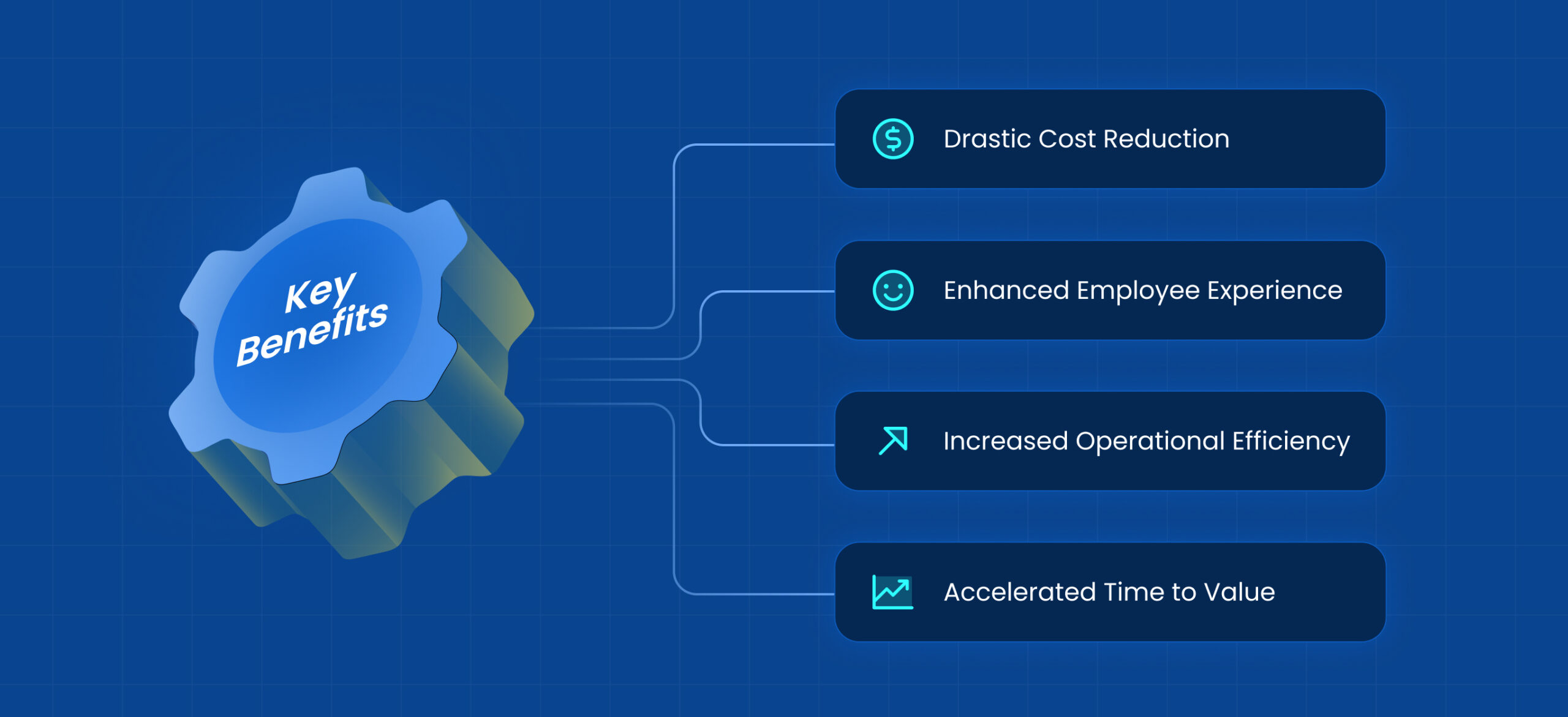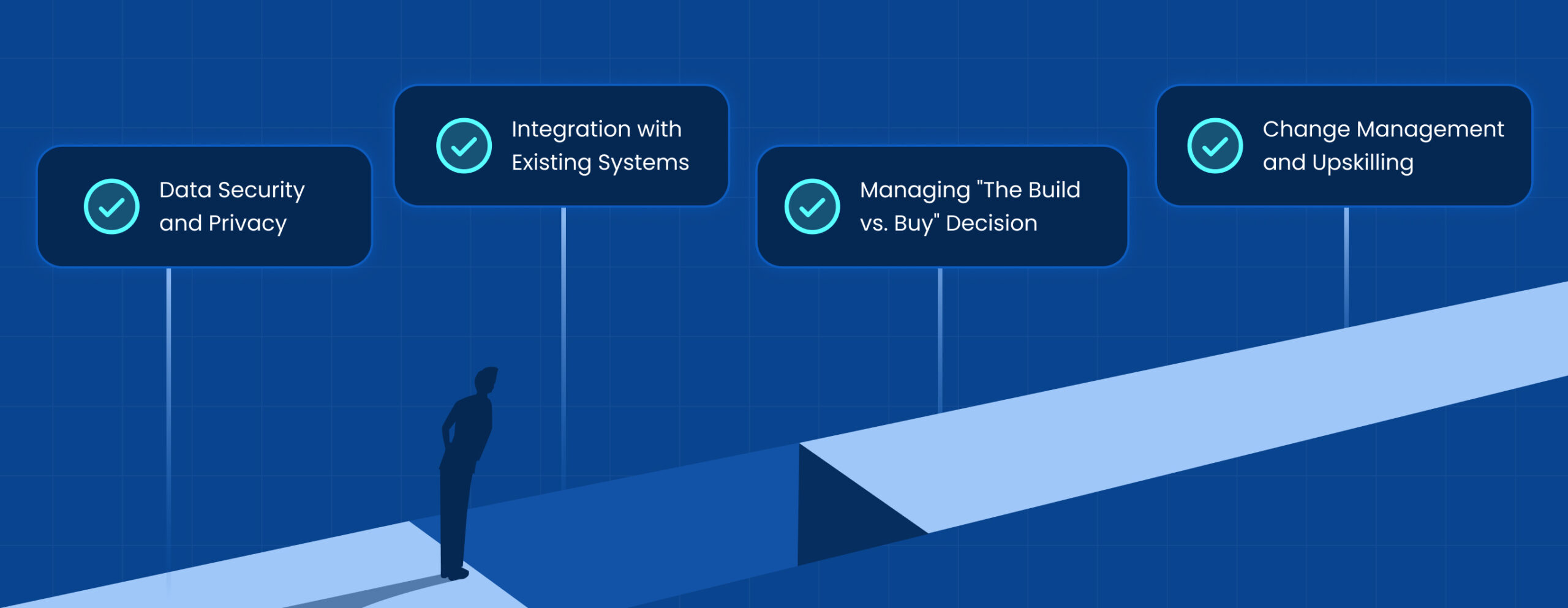Introduction
As a leader in a large American enterprise, you’re constantly navigating the next wave of technological change. The question isn’t if you should adopt new technology, but which technology will deliver a true competitive advantage, streamline your operations, and positively impact your bottom line. Right now, all eyes are on Artificial Intelligence.
But the prospect of building an AI-powered enterprise from the ground up is daunting. It requires immense resources, specialized talent, and significant time, luxuries few can afford. This is where a transformative approach comes in: AI as a SaaS (AIaaS).
This guide is for you, the forward-thinking leader. It’s a straightforward look at what AIaaS is, how it’s changing the game for companies just like yours, and what you need to know to make intelligent, strategic decisions for 2025 and beyond.
What is AI as a SaaS (AIaaS)?
Let’s keep it simple. Think about how Software as a Service (SaaS) works today. You use powerful software like Salesforce or Workday through a subscription, without ever needing to build or host the application yourself.
AI as a SaaS (AIaaS) applies the exact same logic to Artificial Intelligence. It’s a way for your company to access and use powerful AI capabilities on a subscription basis. Instead of undertaking a massive, multi-year project to build your own AI models, you partner with a specialized provider who handles all the complexity. They manage the data, the algorithms, and the infrastructure. You get the benefits, the intelligence, the automation, the insights, delivered directly into your existing workflows.
For leaders overseeing vast IT, HR, and Finance departments, this model is a game-changer. It democratizes access to cutting-edge technology, allowing you to deploy sophisticated solutions that solve real-world business problems, like instantly resolving employee support tickets, without the colossal upfront investment.
How AI as a SaaS (AIaaS) Works for Modern Enterprises
Imagine one of your employees, a sales director named Sarah, has a problem. Her laptop won’t connect to the company’s virtual private network, and she has a client presentation in an hour.
In a traditional setup, Sarah would create an IT ticket. That ticket would land in a long queue, waiting for a support agent to pick it up, diagnose the issue, and hopefully resolve it in time.

Now, let’s see how AI as a SaaS (AIaaS) transforms this scenario.
- Instant Engagement: Sarah doesn’t open a ticket. She simply sends a message in your company’s chat tool, like Slack or Microsoft Teams: “My VPN isn’t working.”
- Intelligent Diagnosis: An AI agent, powered by an AI as a SaaS (AIaaS) platform, immediately understands her request. It cross-references Sarah’s identity, her device type, and recent network alerts. It recognizes this is a common, solvable problem.
- Automated Resolution: The AI agent doesn’t just provide a link to a help article. It initiates an automated workflow. It might ask Sarah for permission to run a diagnostic script, reset her network settings, or guide her through a two-step verification process, all within the chat window.
- Seamless Handoff (If Needed): If the issue is unusually complex, the AI instantly routes the conversation to the right human expert, with a complete summary of the problem and the steps already taken. There’s no repetition, no lost time.
For Sarah, the experience is fast and frictionless. For your IT department, a ticket that would have taken 30 minutes of human effort was either resolved in seconds or handed off with perfect context. This is the power of AI as a SaaS (AIaaS) in action, it’s not just about answering questions, but about taking action.
Types of AI as a SaaS (AIaaS) Solutions
The AI as a SaaS (AIaaS) landscape is diverse, but most solutions fall into a few key categories relevant to enterprise leaders:
- Conversational AI Platforms: These are more than just chatbots. These platforms use advanced Natural Language Processing to understand, process, and respond to human language. For your enterprise, this means intelligent virtual agents that can handle employee queries across IT, HR, and Finance, from “What’s my remaining vacation balance?” to “My payroll seems incorrect.”
- Machine Learning as a Service (MLaaS): These services provide the tools for your technical teams to build, train, and deploy their own machine learning models without managing the underlying infrastructure. This is often used for predictive analytics, like forecasting product demand or identifying potential customer churn.
- API-Based AI Services: Many providers offer specific AI capabilities through Application Programming Interfaces (APIs). This allows your developers to easily integrate features like image recognition, text-to-speech, or language translation into your existing applications. For example, your expense reporting app could use an API to automatically read receipts from a photo.
For most large enterprises looking to solve internal support challenges, Conversational AI Platforms represent the most direct and impactful application of the AI as a SaaS (AIaaS) model.
Key Benefits of AI as a SaaS (AIaaS)
Adopting an AI as a SaaS (AIaaS) strategy for 2025 isn’t just about keeping up with trends. It’s about unlocking tangible business value.

- Drastic Cost Reduction: The financial model is compelling. You convert a massive potential capital expenditure into a predictable operating expense. More importantly, you achieve a significant reduction in your Total Cost of Ownership (TCO) for employee support. By automating the resolution of common tickets, you free up your human agents to focus on high-value, complex problems, scaling support without scaling your headcount.
- Enhanced Employee Experience: In today’s competitive talent market, the quality of your internal services matters. Long wait times for IT or HR support are a source of frustration and lost productivity. An AI as a SaaS (AIaaS) solution provides instant, 24/7 support, giving your employees what they need, when they need it. This isn’t just a “nice-to-have”; it’s a critical component of being a modern employer of choice.
- Increased Operational Efficiency: The impact on your service management metrics is immediate. You’ll see a dramatic improvement in resolution times and a higher first-contact resolution rate. But the benefits go deeper. By analyzing trends in support requests, a good AI as a SaaS (AIaaS) platform can provide predictive insights, helping you identify and fix systemic problems before they escalate into major incidents.
- Accelerated Time to Value: The traditional “build” approach to AI is a long-term research and development project. An AI as a SaaS (AIaaS) solution, by contrast, can be implemented and delivering value in a matter of weeks, not years. This agility allows you to respond to changing business needs and see a return on your investment much faster.
Common Challenges and Best Practices for AI as a SaaS (AIaaS)
Embracing AI as a SaaS (AIaaS) requires a strategic approach. Here are the critical considerations for a successful rollout.

- Data Security and Privacy: This is paramount. As a CISO or CIO, you need to know exactly how your vendor handles your data. Ask the tough questions: Where is our data stored? How is it used for training models? Is our data isolated from other customers? Look for vendors with robust security certifications (like SOC 2 and ISO 27001) and a clear, transparent policy on data governance and privacy.
- Integration with Existing Systems: An AI solution that operates in a silo is a recipe for failure. The power of AI as a SaaS (AIaaS) is unlocked through deep integration with your core systems of record, like ServiceNow, Workday, or Jira. Before choosing a vendor, ensure they have a proven, API-first architecture that allows for seamless, two-way communication with the platforms you already use.
- Managing “The Build vs. Buy” Decision: The rise of powerful open-source models can make building a custom solution seem tempting. For a CTO, the crucial analysis involves looking beyond the initial build. Consider the long-term costs of maintenance, the need for a specialized team to manage model drift and updates, and the speed to market. For most enterprises, buying a mature AI as a SaaS (AIaaS) platform offers a more reliable and cost-effective path.
- Change Management and Upskilling: AI doesn’t replace your service desk; it transforms it. Your team’s focus will shift from handling repetitive, low-level tasks to managing the AI, overseeing automated workflows, and tackling the most complex challenges. A successful implementation requires a clear plan for upskilling your staff, turning them into “AI trainers” and expert problem-solvers.
How Leena AI Powers AI as a SaaS (AIaaS) for Enterprises
At Leena AI, we’ve seen firsthand how the right AI as a SaaS (AIaaS) partner can revolutionize an enterprise. We specialize in providing a unified AI agent that acts as a single, intelligent gateway for employees to get help from IT, HR, and Finance.
Our approach is built on a concept we call “Agentic AI Assist.” This isn’t just a chatbot that finds answers. Our AI agents are designed to take action.
When an employee needs to reset a password, our AI agent doesn’t just send them a link. It authenticates their identity and performs the reset directly within Microsoft Teams or Slack. When a new hire needs access to five different software applications, our AI agent orchestrates the provisioning across all those systems automatically.
This is the core of our value. We connect to your existing enterprise applications, understand complex, multi-step processes, and execute them on behalf of the employee. This level of hyperautomation is what separates a simple Q&A bot from a true enterprise-grade AI as a SaaS (AIaaS) platform. For our clients, this means millions of dollars in saved productivity, radically improved employee satisfaction, and IT and HR teams that are finally free to focus on strategic initiatives.
Frequently Asked Questions about AI as a SaaS (AIaaS)
-
Is AIaaS secure for enterprise use?
Absolutely, provided you choose the right partner. Leading AI as a SaaS (AIaaS) providers offer enterprise-grade security, including data encryption, regular audits, and compliance with standards like SOC 2 and GDPR, ensuring your data is always protected.
-
Will an AIaaS solution create more work for my IT team to manage?
No, the opposite is true. The goal of AI as a SaaS (AIaaS) is to reduce the workload. The vendor manages the AI infrastructure and model updates. Your team’s role shifts from manual ticket resolution to higher-value oversight and strategic problem-solving.
-
How long does it take to implement an AIaaS platform?
Unlike in-house AI projects that can take years, a mature AI as a SaaS (AIaaS) solution can often be implemented in a matter of weeks. These platforms are designed for rapid deployment and integration with standard enterprise systems.
-
Can AIaaS understand our company’s unique terminology and processes?
Yes. A key feature of advanced AI as a SaaS (AIaaS) platforms is their ability to be fine-tuned on your company’s internal knowledge bases, documents, and historical ticket data. This allows the AI to understand your specific jargon, policies, and workflows.
-
What kind of return on investment can we expect from an AIaaS solution?
The ROI from AI as a SaaS (AIaaS) is multi-faceted. It includes direct cost savings from ticket automation, productivity gains from faster issue resolution for all employees, and the strategic value of freeing up your skilled technical staff to focus on innovation.
-
Does AIaaS work with our existing tools like Slack and ServiceNow?
A core strength of a good AI as a SaaS (AIaaS) platform is its ability to integrate seamlessly where your employees already work. Look for pre-built integrations with major communication platforms (Microsoft Teams, Slack) and ITSM systems (ServiceNow, Jira, etc.).
-
What makes one AIaaS provider different from another?
Key differentiators for an AI as a SaaS (AIaaS) provider include the depth of their integrations, their security posture, their ability to perform actions (not just answer questions), and their proven track record with large enterprises in your industry.
Learn more about Leena AI’s pioneering Agentic AI Architecture
Read Enterprise Customer Success Stories .
Check out why Gartner and many others recognise Leena AI as a leader in Agentic AI
Learn more about Voice-Enabled AI Colleague .
Sign up for our Webinars and Events








